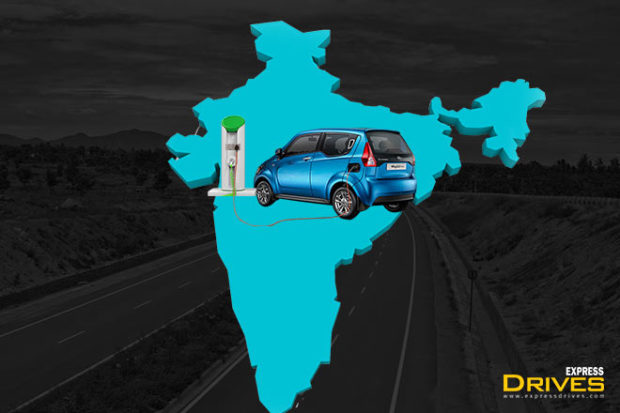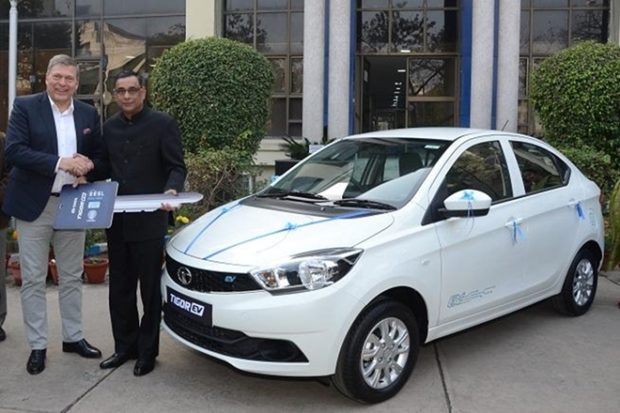
A Public sector undertaking (PSU), Maruti Suzuki growing into India’s largest carmaker with over 50% market share in itself is an example of Indian carmakers being self-sufficient in driving growth along with bringing in new technologies in India. Let’s face it, India is a difficult market to sell cars – it is price sensitive and new technologies are not adopted immediately. Globally, with electric mobility taking the centre stage, India is poised to shift to EVs quicker than many other countries if various stakeholders collaborate properly towards the nations’ EV dream.
Recent media reports saying ‘government officials reject electric vehicles’ built by the likes of Tata Motors and Mahindra Electric is not just disappointing but also wrong at many levels. If at all the reports of government officials were unhappy with current electric Tigor and e-Verito procured by Energy Efficiency Services Limited (EESL) are true then it’s the tender and the demanded specifications of electric cars specified that is at fault. There are two ways to look at it, the first obvious way is that even for the government and EESL this was the first experience with electric cars. While the specifications about the range of electric cars and its top-speed were sufficient for daily use within the city limits, it is still possible for these cars to run out of juice, forcing the officials to shift back to conventional cars with the lack of charging infrastructure.
Also read: Tesla India entry: Elon Musk’s plans for India
The second is that Government and EESL should have gone for a premium pricing for electric cars that offer high-range and better performance. This would have given government officials cars like Tesla, Nissan or Toyota in India and there would have been no whining but at a massive cost. However, this would have been against Modi’s Make-In-India campaign, discouraging Indian carmakers and component suppliers to invest in EVs at the cost of keeping government babus happy. In addition, the state of car charging facility would have remained stagnant, hindering the future growth of EVs.
Government officials are known to have used luxury cars ever since independence, from the likes of HM Ambassadors to Toyota Corolla and Toyota Camry sedans. Such cars have been used by various central and state government officials and after using such high-end cars, moving to lower segment electric cars is always frustrating.

As per EESL tender, both Tata Motors and Mahindra Electric have met all the criteria that were within the government’s budget. At a price of less than Rs 12 lakh, building an electric car in a country where neither there is a strong base to make batteries or a proper infrastructure in place is a challenging task, but both Indian automakers took the task to develop the electric cars in India, taking a small step towards government’s big EV dream. Tata Motors does give EESL its due credit on striking the optimum balance between meeting the daily running requirements of the end-users and the price of the procured electric car in the first round of electric car procurement.
Global automakers including Tesla, Nissan at several occasions have mentioned about bringing its electric cars in India. The wait for government incentives, clarity on EV policy in India and lack of charging infrastructure have stopped Tesla coming to India as per Elon Musk. Nissan says it will launch its Leaf electric car in India before 2020. But Indian automakers have already taken a leap of faith in electric cars and government’s vision and are investing and working hard to build EVs and in the given scenario these are the best electric cars in India. So credit to Tata Motors and Mahindra & Mahindra for the first move is certainly due.
Also read: Electric cars for babus: Is it really Mahindra vs Tata Motors in Indian electric car space?
If making and selling electric cars in India was easy, then Elon Musk’s Tesla would have been in India already and the Nissan Leaf would’ve been a go-to electric car for cab aggregators, Renault would have launched its Zoe and there would be many car charging stations every 5 kilometres. While this is a dream today it can be a reality soon. For that though, India needs to get all its stakeholders in one room and work on a single plan to reduce pollution and India’s oil-import bill.
The first move to procure electric cars by the government is the right move and now the government should look at popularising electric cars as they become affordable in the given future. Likes of Maruti Suzuki and Hyundai Motor India will soon launch mass-market electric cars in India. Tesla too will come to India as Elon Musk cannot stay away from a fast-growing market like India for long. EESL and NITI Aayog might be representing the Indian government, but are helping both EV makers and the government to seed the initial saplings of EVs in India. Like it or not, electric mobility is the future, India cannot avoid and sooner we start accepting EVs, the better it is for the society and for that we do not need Tesla to lead the way.





















